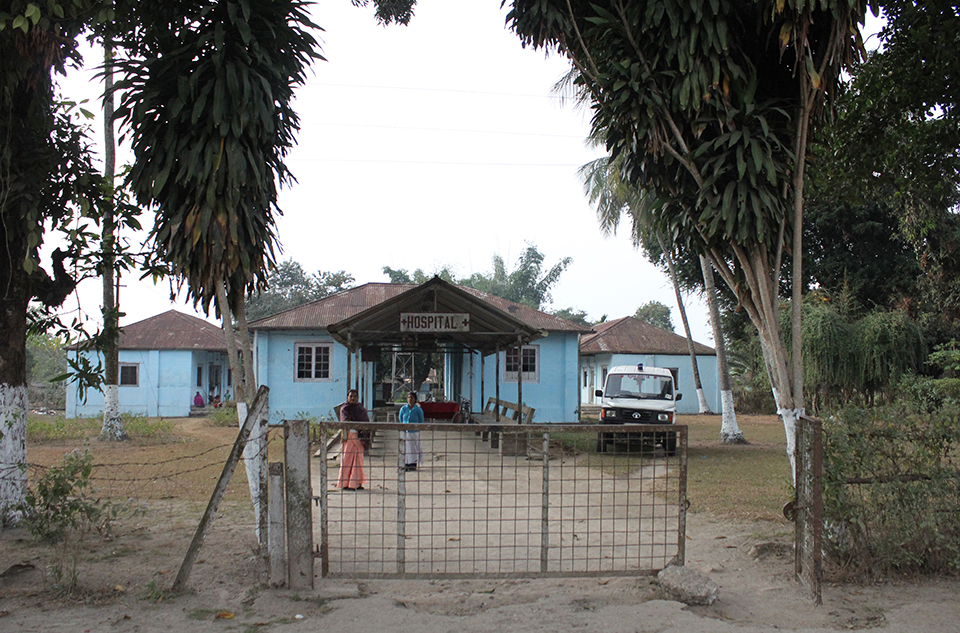
Imagine a pregnant woman, waiting in a corridor for 20 days for maternal care, which is legally guaranteed, never to receive it; having a nurse ask you how much you value your sister’s life, bribing you to save her; calling for an ambulance, for it never to come; or needing blood and it being refused because you can’t pay for it. These are a few of the harsh realities uncovered in the End MM Now report: No Time to Lose: Fighting Maternal and Infant Mortality through Community Reporting.
The report paints a pervasive picture of the many structural and economic barriers women tea garden workers in Assam face when seeking legally guaranteed maternal health care. In light of this, the report provides recommendations which would immediately reduce maternal mortality rates, in a region suffering from the highest rates in India.
Through a unique international, national, and local civil society collaboration, the International Center for Advocates Against Discrimination (ICAAD), Nazdeek, and the Promotion and Advancement of Justice, Harmony and Rights of Adivasis (PAJHRA), were able to use their respective expertise in complex systems analysis, maternal health rights, and understanding the unique challenges to the Adivasi population, to establish an innovative reporting system.
Focusing on ambulatory services, blood availability, quality of care, discrimination, and the hospital referral system, the project team developed a community-based reporting platform. The goal was to spread awareness, through the use of mobile phones, about legally mandated access to maternal healthcare, and to empower tea garden workers with data which could be used for advocacy around maternal health system failures; under the ambit of the United Nations Millennium Development Goals and proposed Sustainable Development Goals. The team developed and held trainings in the tea garden communities, where the highest rates of maternal health violations occur, to educate and equip 45 women with the ability to report maternal health system failures by text.
Armed with mobile phones, volunteers set out to collect data while the project team decoded, verified, and mapped these violations. End MM Now uncovered 68 instances of human rights violations within 8 months in two districts. In 15 cases, maternal and infant death resulted because the women did not have enough money, a doctor or nurse wasn’t present at the hospital/clinic, blood was nonexistent, or an ambulance wasn’t available. Bribery, corruption, and discrimination against Adivasi and scheduled caste women played a significant role in healthcare failures.
One extortion case-study highlighted in the report described a woman who was referred to four medical facilities, left by herself with no food, water or attendants overnight, and left bleeding for two hours after delivery until she became unconscious. When the woman’s sister pleaded with the nurses to help her sister, “[t]he nurses responded: ‘Show us how much you want her to survive,’ and demanded a bribe. While R was bleeding to death, her family was forced to pay 100 rupees [$1.60 or roughly 6.5 days worth of wages] to all the five nurses present, who finally stitched her cut.” Another case study highlighted the plight of a woman transferred four times between hospitals for lack of blood availability; she died on the way to the last hospital.
The data collected informed key recommendations, including: the need to hire a hematologist for the areas served; the need to improve coordination between hospitals; and to increase the number of ambulances to cover the rural tea gardens. The project serves as a poignant example of how simple technology tools in the hands of determined community members can reveal major gaps in the safety and quality of care, and provide accountability in the enforcement of laws guaranteeing that care. Furthermore, the 45 local women involved in the project felt a sense of agency and recognition of their own rights while understanding the impact of their documentation work on combating maternal mortality.
Under the proposed Sustainable Development Goals, the goal is to bring the maternal mortality ratio (MMR) to 70 deaths per 100,000 births. Assam currently has the worst MMR in India, at 328 deaths per 100,000 births. Local health officials have expressed much interest in the gaps and failures the report uncovered, and are establishing regular meetings with members of the End MM Now team and community members. Officials have already indicated a willingness to implement some of the report’s proposed recommendations.
Bryan Miller, Board Member, ICAAD and Jaspreet K Singh, Co-Founder, ICAAD
